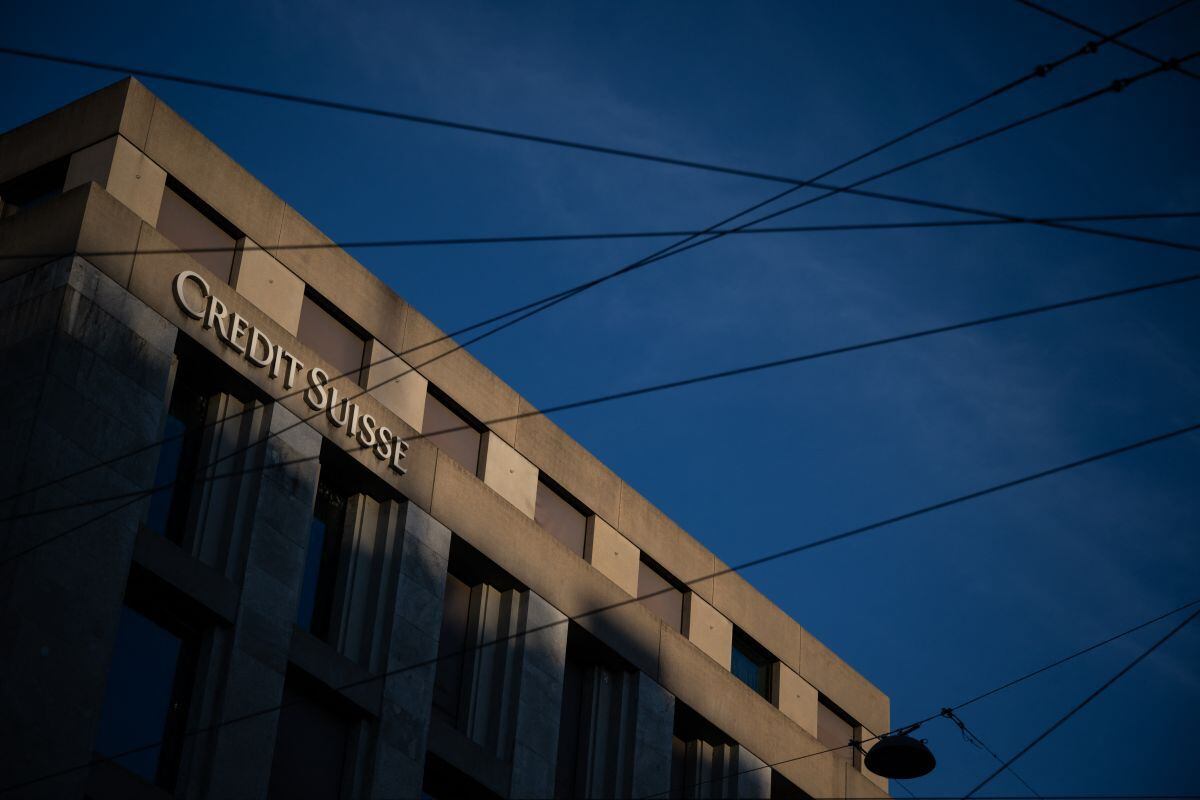
Credit Suisse Group AG is headed for a decisive weekend after some rivals were cautious in their dealings with the troubled Swiss entity and its regulators urged it to seek a deal with UBS AG.
Credit Suisse’s chief financial officer, Dixit Joshiand their teams will hold meetings over the weekend to assess strategic scenarios for the bank, people with knowledge of the matter said on Friday.
Swiss regulators are encouraging UBS and Credit Suisse to merge, a source familiar with the matter said, but added that both institutions were reluctant to take the step. Regulators have no power to force the merger, the person said.
The boards of directors of UBS and Credit Suisse are also expected to meet separately over the weekend, according to the Financial Times.
Credit Suisse shares rose 9% in trading after the FT report was released. Credit Suisse and UBS declined to comment on the news.
Credit Suisse, a 167-year-old bank, is the largest bank caught in the market turbulence sparked by the collapse of US lenders Silicon Valley Bank (SVB) and Signature Bank over the past week, forcing it to tap $54 billion in central bank financing.
In the latest sign of their growing troubles, at least four big banks, including Société Générale SA and Deutsche Bank AG, have placed restrictions on their dealings with the Swiss lender or its securities, according to five sources with direct knowledge of the matter.
“Credit Suisse is a very special case”says Frédérique Carrier, from RBC Wealth Management. “Swiss central bank intervention was a necessary step to calm the flames, but it might not be enough to restore confidence in Credit Suisse, so there is talk of further action.”
The frantic efforts to prop up Credit Suisse come at a time when policymakers like the European Central Bank and the US president, Joe Biden, have tried to reassure investors and depositors that the global banking system is safe. But fears of broader problems in the sector persist.
Already this week, big US banks had to step in with a $30 billion lifeline for small lender First Republic, while US banks collectively asked the Federal Reserve for a record $153 billion in recent days. in emergency liquidity.
This figure exceeded the maximum established during the most acute phase of the financial crisis, some 15 years ago.
This reflects “the financing and liquidity tensions of the banks, driven by the weakening of the confidence of the depositors”, noted the rating agency Moody’s, which this week lowered its outlook on the US banking system to negative.
In Washington, attention has turned to increased oversight to ensure banks – and their executives – are held accountable.
Biden, who earlier this week promised Americans their deposits are safe, called on Congress on Friday to give regulators greater power over the banking industry, including imposing higher fines, repossessing funds and exclusion of bankrupt bank officials, according to a White House statement.
A group of US Democratic lawmakers also called on regulators and the Justice Department to investigate the role of Goldman Sachs in the collapse of SVB, US Representative Adam Schiff’s office said on Friday.
problems persist
Since the bankruptcy of the SVB, bank values have taken a hit around the world, raising questions about other weaknesses in the broader financial system.
Shares of Credit Suisse, Switzerland’s second-largest bank, closed 8% lower on Friday, and Morningstar Direct said the bank had seen more than $450 million in net outflows of its managed funds in the US and Europe from March 13 to 15.
Analysts, investors and bankers believe the credit line from the Swiss central bank – which made it the first major world bank to avail itself of an emergency lifeline since the 2008 financial crisis – only gave it time to decide what to do next.
Increased financial volatility and uncertainty about Credit Suisse’s future may cloud Switzerland’s economic outlook, but liquidity support is unlikely to affect the country’s public finances, DBRS Morningstar wrote in a note to investors.
Shares of US regional banks fell sharply on Friday and the S&P Banks Index plunged 4.6%, bringing its decline in the past two weeks to 21.5%, its worst two-calendar-week loss since the coronavirus pandemic. COVID-19 rocked the markets in March 2020.
First Republic Bank ended Friday down 32.8%, bringing its loss over the past 10 sessions to more than 80%.
Although support from some of the biggest names in US banking prevented its collapse this week, investors were startled by the belated disclosures of First Republic about his cash position and how much emergency liquidity he needed.
Earlier on Friday, SVB Financial Group said it had filed for a court-supervised reorganization, days after its former banking unit SVB was seized by US regulators.
Banks interested in buying SVB and Signature Bank have been asked by regulators to submit offers before Friday, according to people familiar with the matter. US regulators are willing to consider the government backing the losses of SVB and Signature Bank if it helps spur a sale, the FT reported on Friday, citing people briefed on the matter.
The authorities have insisted time and again that the current situation is different from the global financial crisis of 15 years ago, as banks are better capitalized and funds are easier to come by, but their collateral has often fallen on deaf ears. broken.
In an unusual move, the ECB held an ad hoc meeting of the Supervisory Board, the second this week, to analyze the tensions and volatility of the banking sector.
Source: Reuters Agency.
Source: Gestion
Ricardo is a renowned author and journalist, known for his exceptional writing on top-news stories. He currently works as a writer at the 247 News Agency, where he is known for his ability to deliver breaking news and insightful analysis on the most pressing issues of the day.











